茶叶蛋 Tea Eggs (Cha Ye Dan)
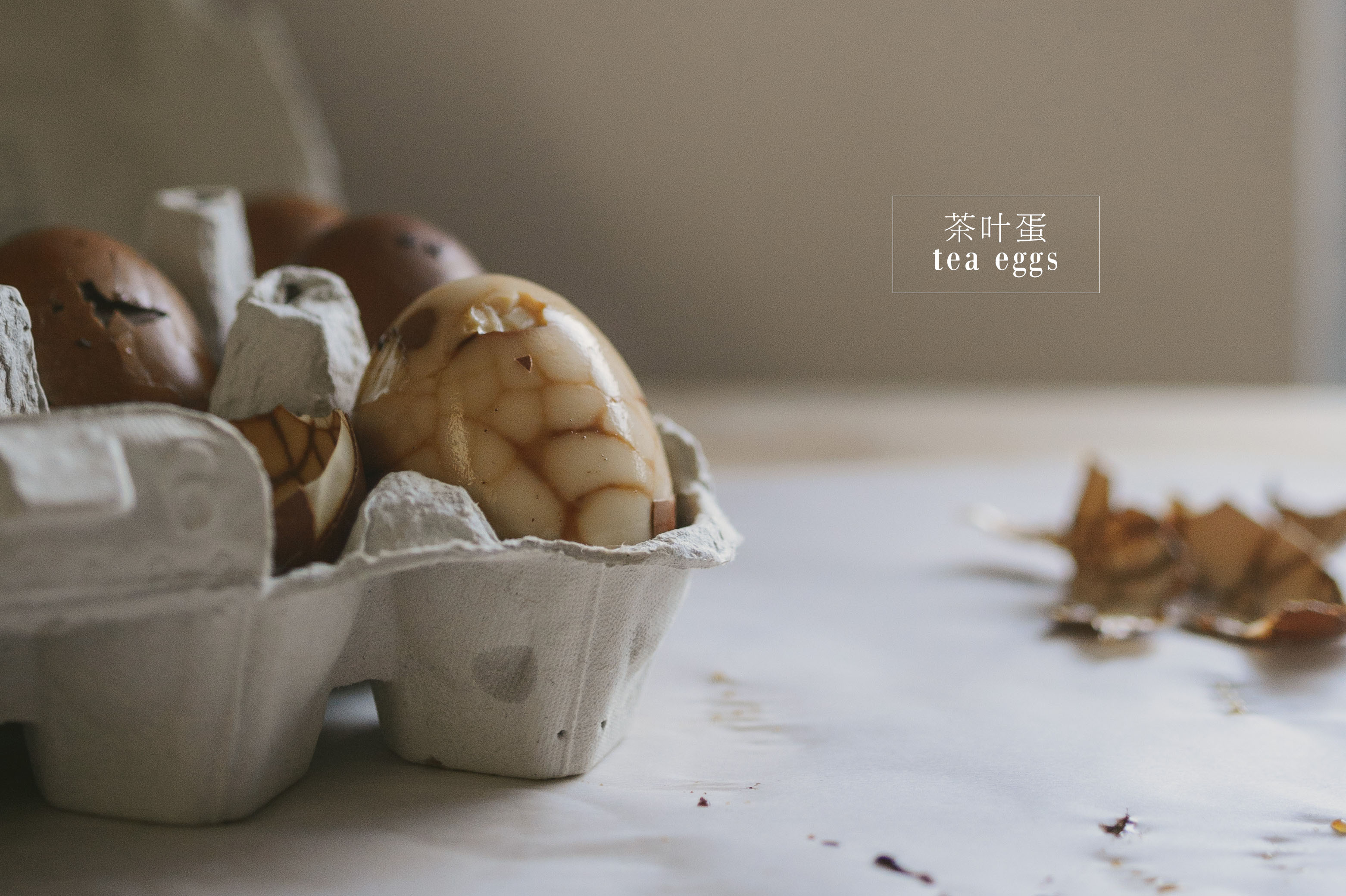
Alex and I clutched each other’s hands, wearing our matching couple shirts (when in China, right?), as we navigated through the hoards of local tourists in 桂林( GuiLin), China. Giulin is known for its karst mountains –its beautiful, breathtaking scenery. There’s a saying – 桂林山水甲天下, meaning something along the lines of Guilin’s mountains and waters are the best under heaven. There’s so much lost in translation – the saying is much more romantic and poetic in Chinese. (sorry about the low quality photos – this was back in 2011, before I knew anything about cameras 🙂 )
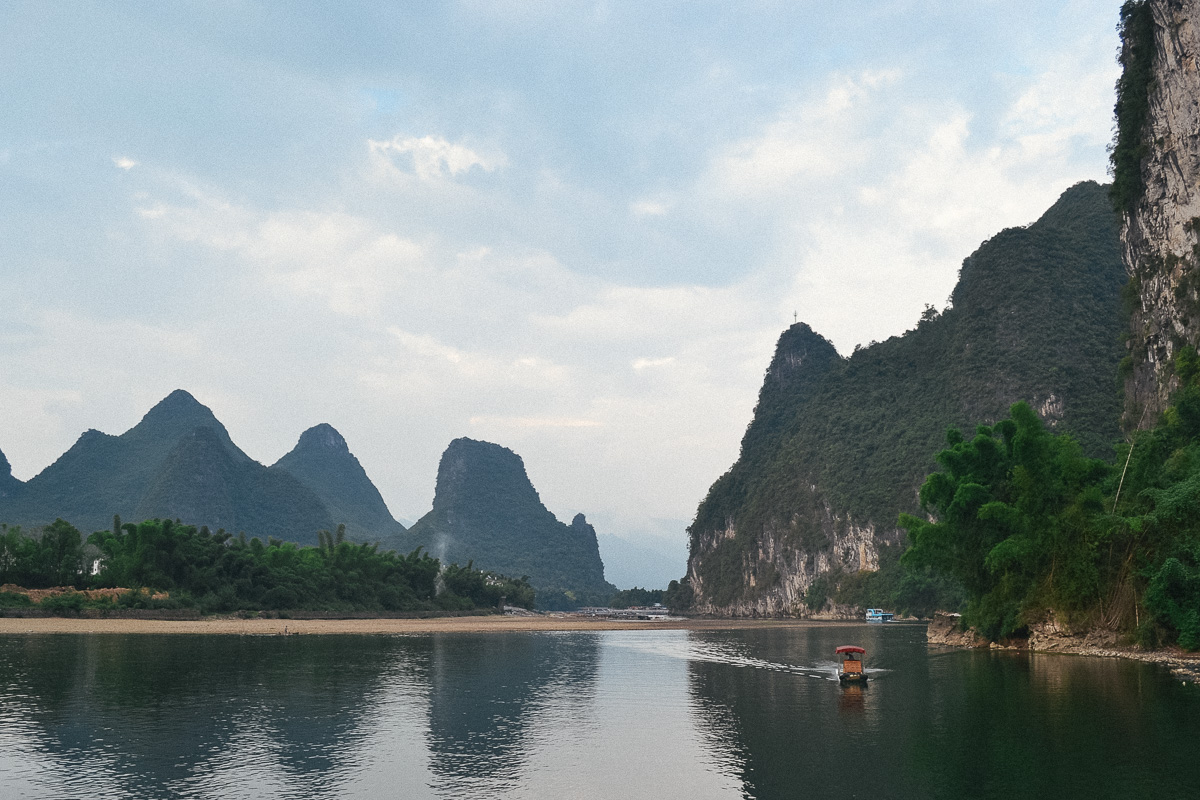
We did a boat tour. These days, the only way you could get out to the water and observe the famous karst mountain scenery is either via someone local who has a boat, or via a tour boat. Anticipating a rush to the decks despite the torrid humidity, we decided to wait until things calmed down. There’s no point in fighting local tourists. They get quite feisty, we’ve learned. We boarded the ship, clinging onto the railing, fighting for balance. Instead of a rush to the decks, we drowned under a rush into the cabin. Shrimp and crabs were bought. Peanut shells started to pile up on the tables inside the air conditioned glass. We stood outside, feeling sweat accumulate on our skin despite standing still. Nobody ventured outside. Everyone was content to stay comfortably indoors, peering out through the glass at the best mountains and waters on earth. I felt almost like a zoo animal –no, a rock inside the zoo, with all the attention focused on the scenery but through a tangible barrier. We were outside that barrier.
I was born in America, but I have a strong background in Chinese culture, because of my parents. I am bilingual. I am fluent in Chinese Mandarin. I can read, write, and listen –maybe not like a native, but enough to get by. I’ve interned in a Chinese architecture firm and traveled around China. I eat a lot of Chinese food and pride myself on being able to identify if a dish is “Americanized” or “authentic”. I like to think that I am strongly rooted in Chinese culture, but whenever I return, I realize more sharply just how different the culture is, and I am humbled. Alex and I expected local tourists to behave the way we do, to have the desire, despite the heat, to simply turn our faces to the wind and enjoy the scenery (and snap a couple of photos).
I guess the reason I decided to revisit our trip to Guilin is to highlight one of my favorite street snacks. It turned in a different direction, but doesn’t that always happen when writing? I love street snacks. Of course, please be careful! You never know how they are made, and if you’ve never been to China before, you may want to nibble just a little before digging in. Whenever we travel within China, there are two things I get. For breakfast, I get Shanghai-style shaomai and pork buns. For a snack, I get 茶叶蛋 cha ye dan (marbled tea eggs). These tea eggs are incredibly easy and fun to make!!

Tea eggs are made by cooking them, cracking them, then simmering them in a tea / anise / soy sauce broth, and finally steeping them in that same marinade overnight. The flavor seeps in through the cracks and spreads through the entire egg. It also leaves beautiful marbled lines from the gentle cracks of the shell. It’s a good snack anywhere.


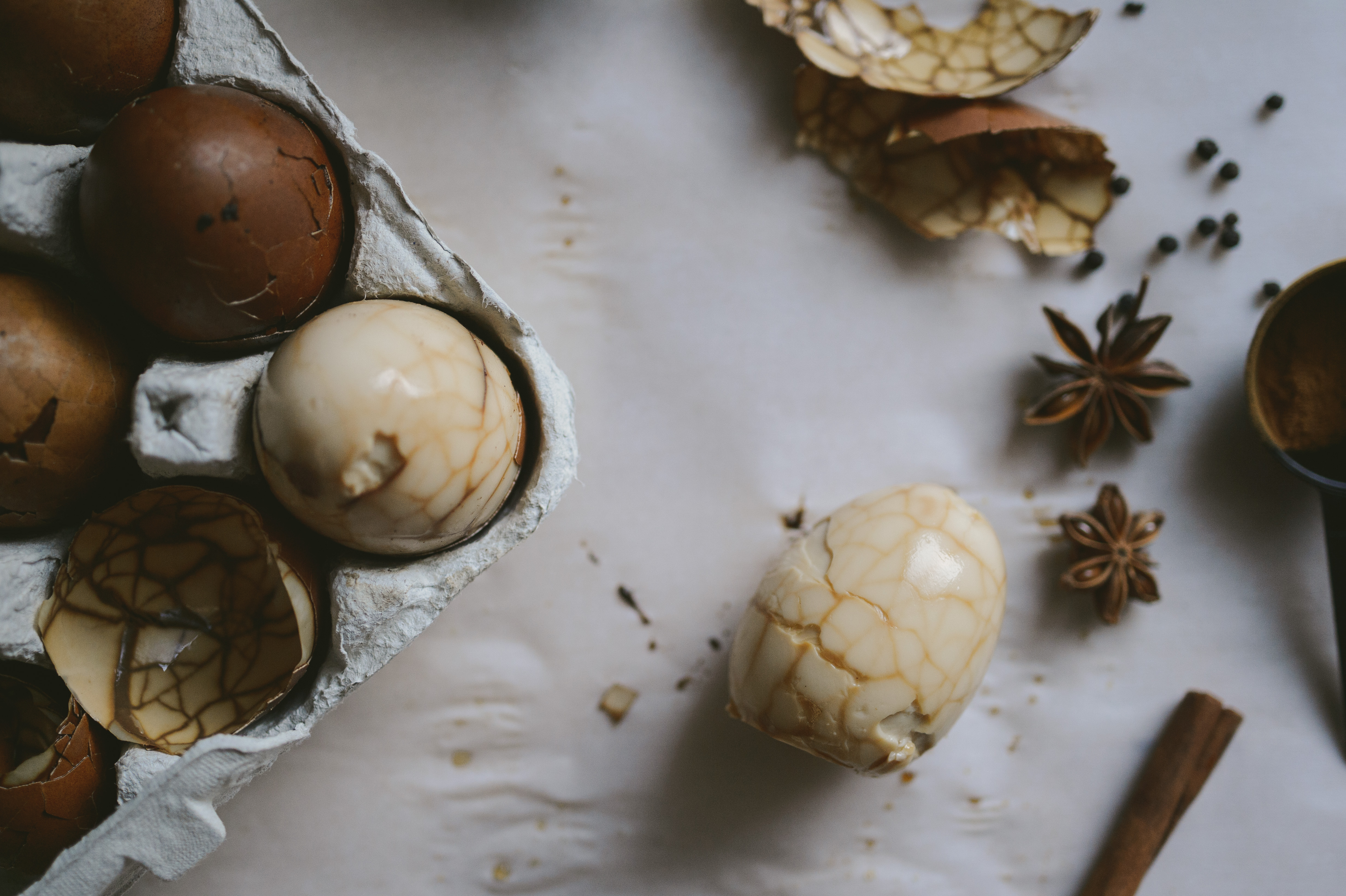
I use star anise, cinnamon stick, five spice, sugar, soy sauce, and tangerine peels as my flavorings. I imagine you could use other spices – cloves, nutmeg, maybe even some bourbon?
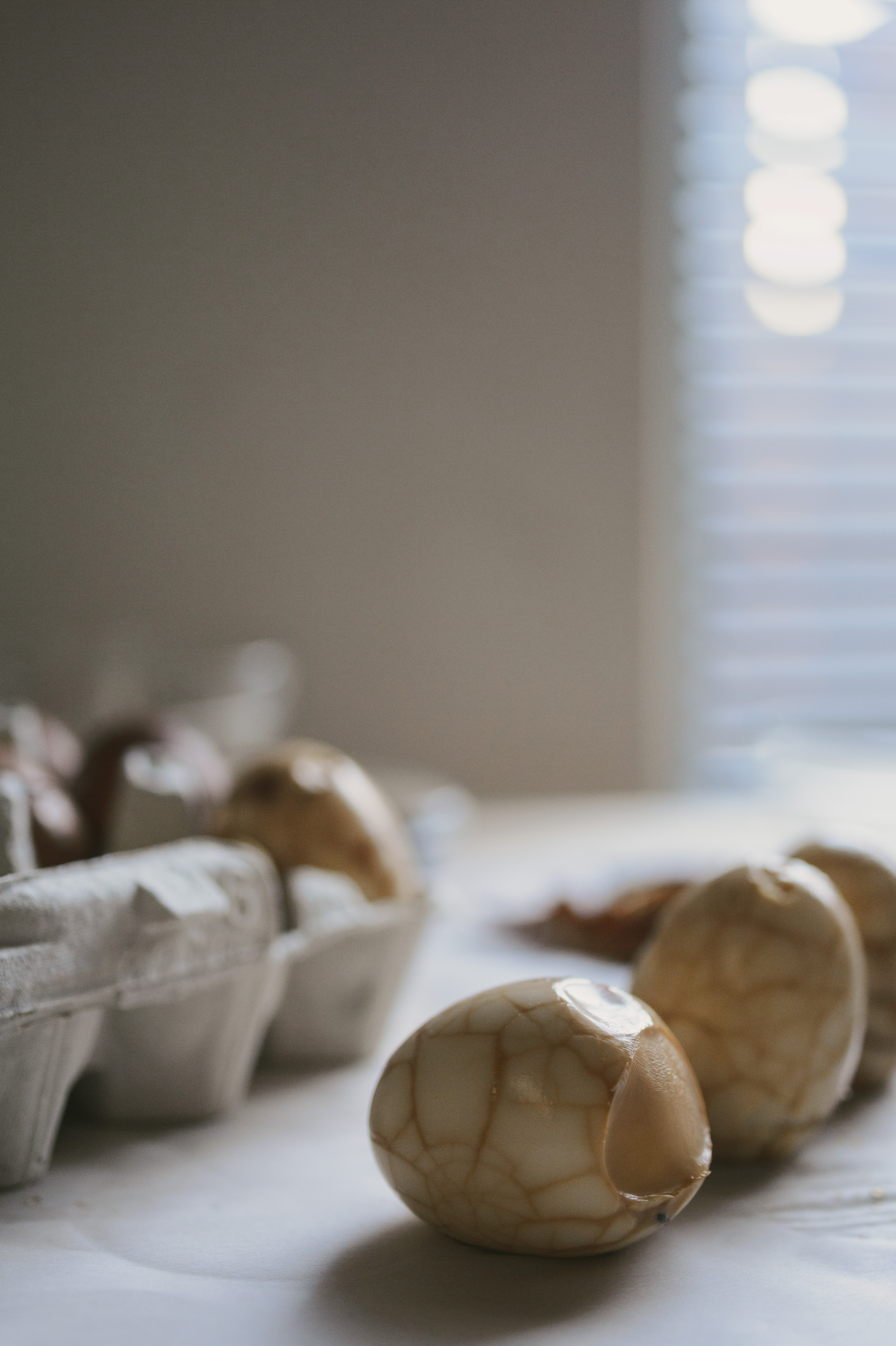
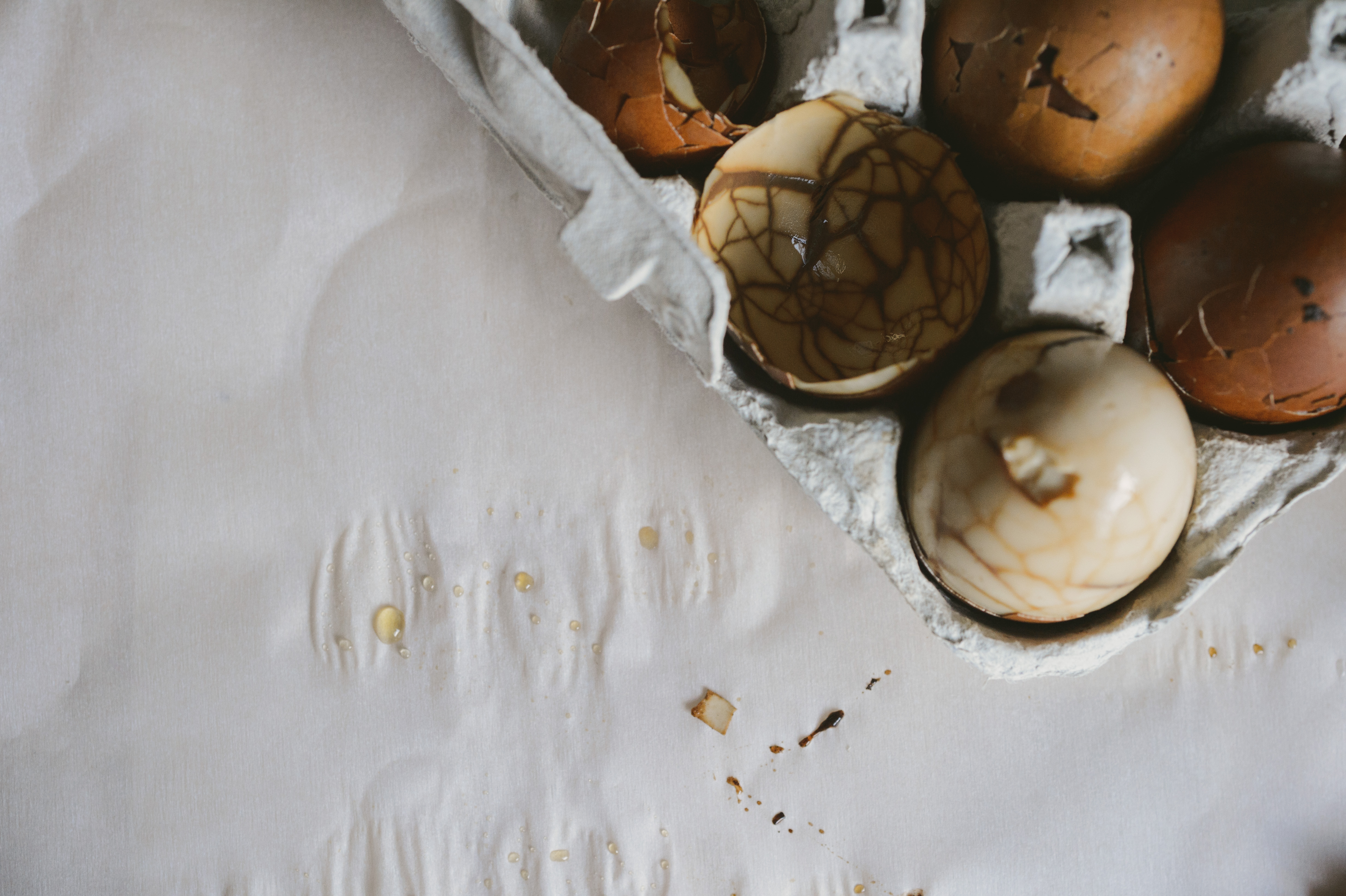

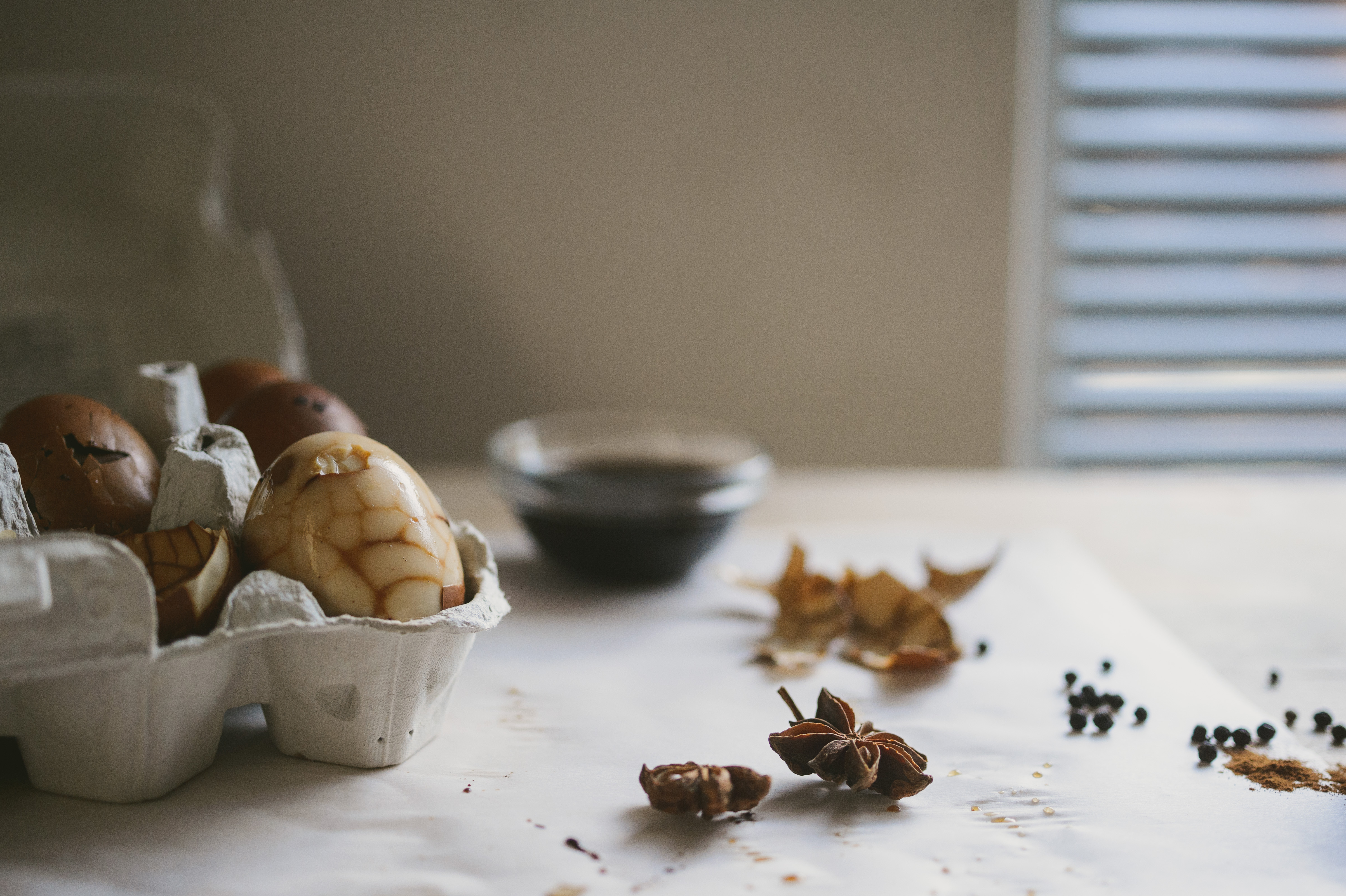
RECIPE: Tea Eggs 茶叶蛋 (cha ye dan)
Ingredients
2 tbsp Chinese black tea
1/4 cup soy sauce
1 cinnamon stick
3 strips of orange peel
2 tbs brown sugar
4 pieces star anise
dash five spice
1/2 tsp szechuan peppercorns or black peppercorns
Directions:
1| Place eggs in one layer at the bottom of a pot. Fill with cool water, until water is 1″ above eggs.
2|Bring to a simmer, then remove from heat, cover, and let sit for 4 minutes. Drain and rinse immediately with cold water (30-60s)
3| Gently crack with the back of a wooden spoon, until entire surface is cracked. Return eggs gently to pot and refill with water, until water just covers the eggs.
4| Add in tea, soy sauce, cinnamon stick, orange peel, brown sugar, star anise, and peppercorns. Stir to incorporate. Bring mixture to a boil, then turn to low and simmer for 30 minutes to 1 hour. Let it cool to room temperature and then steep in mixture overnight in the fridge.
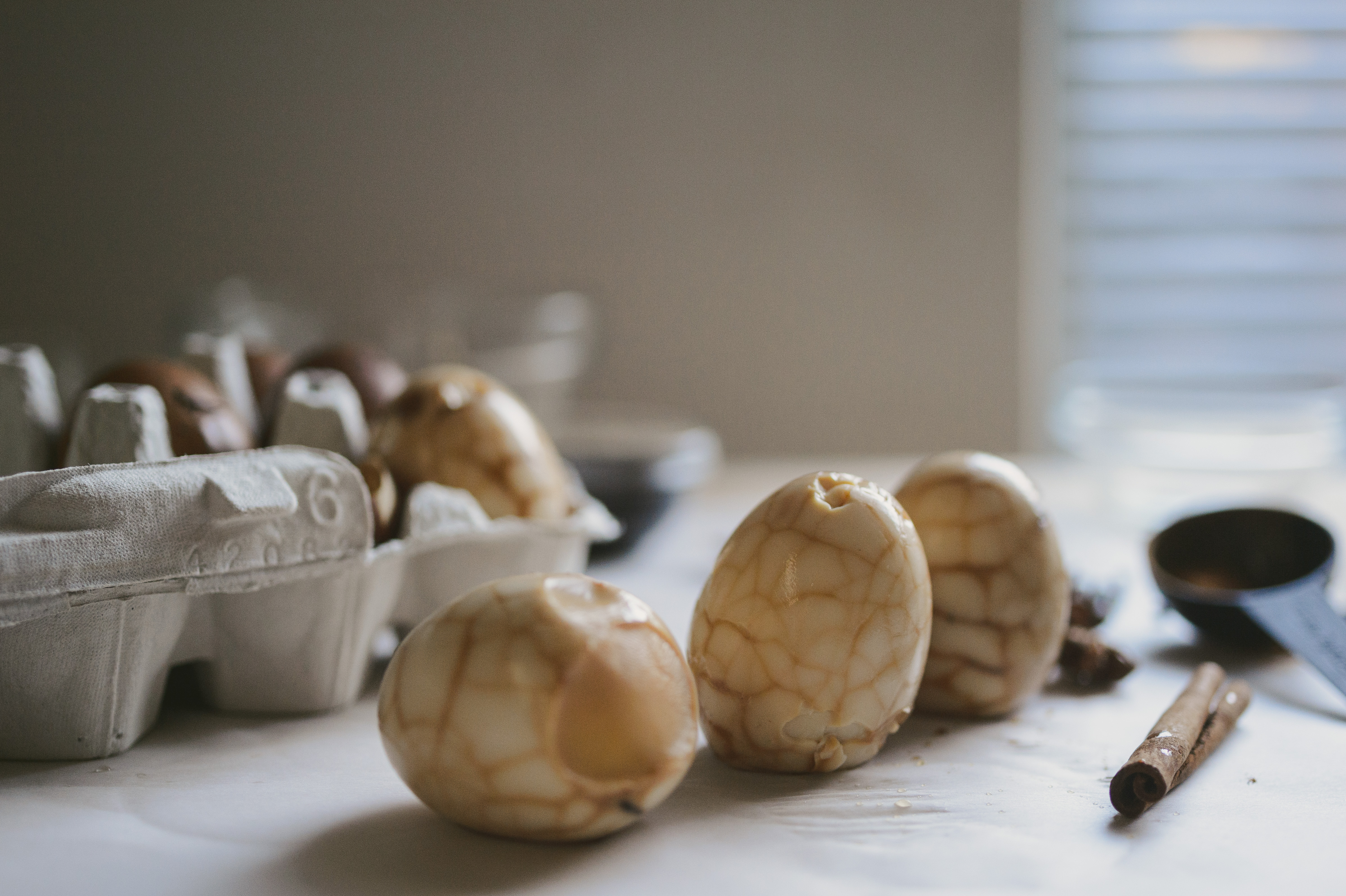

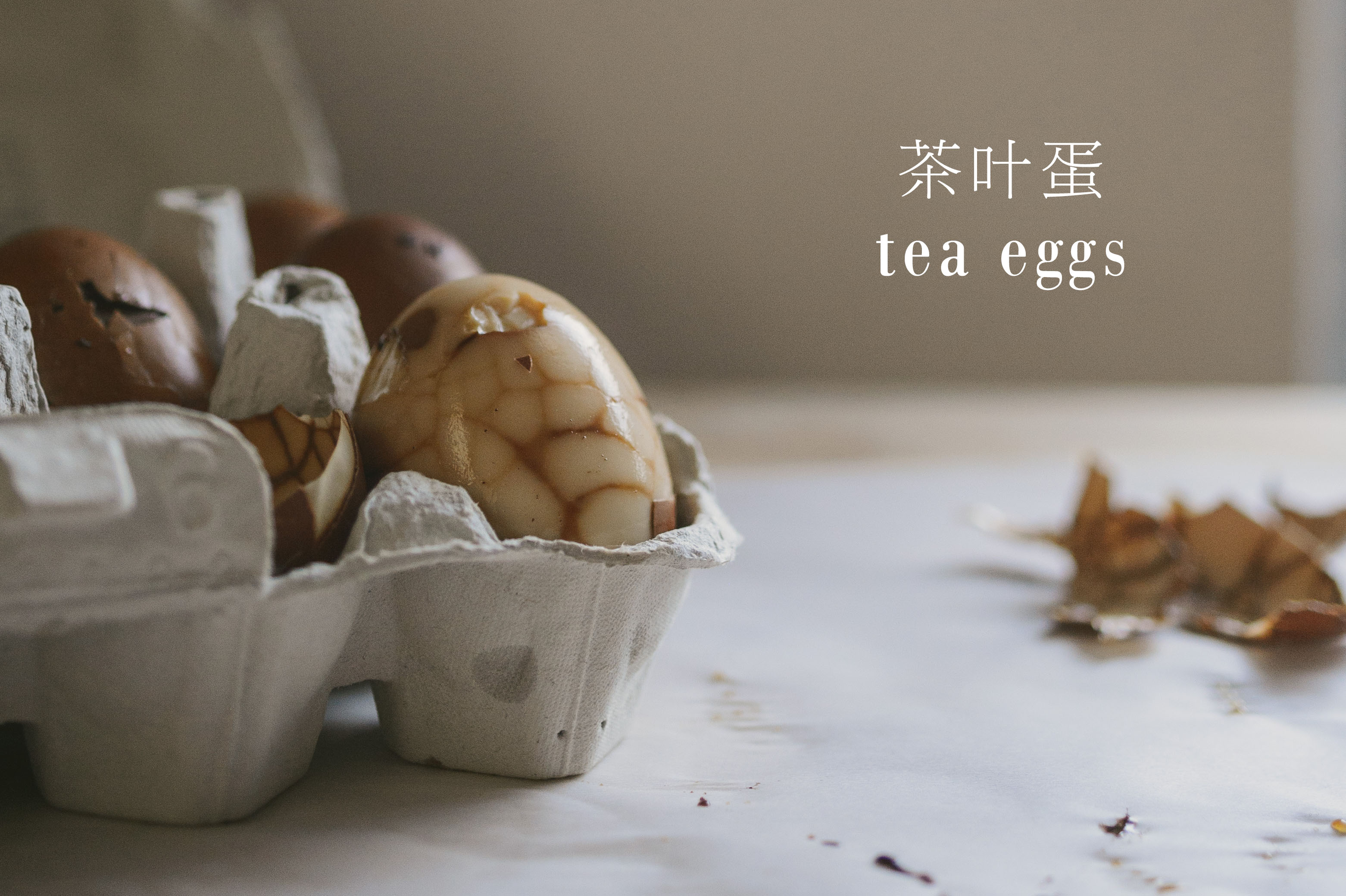
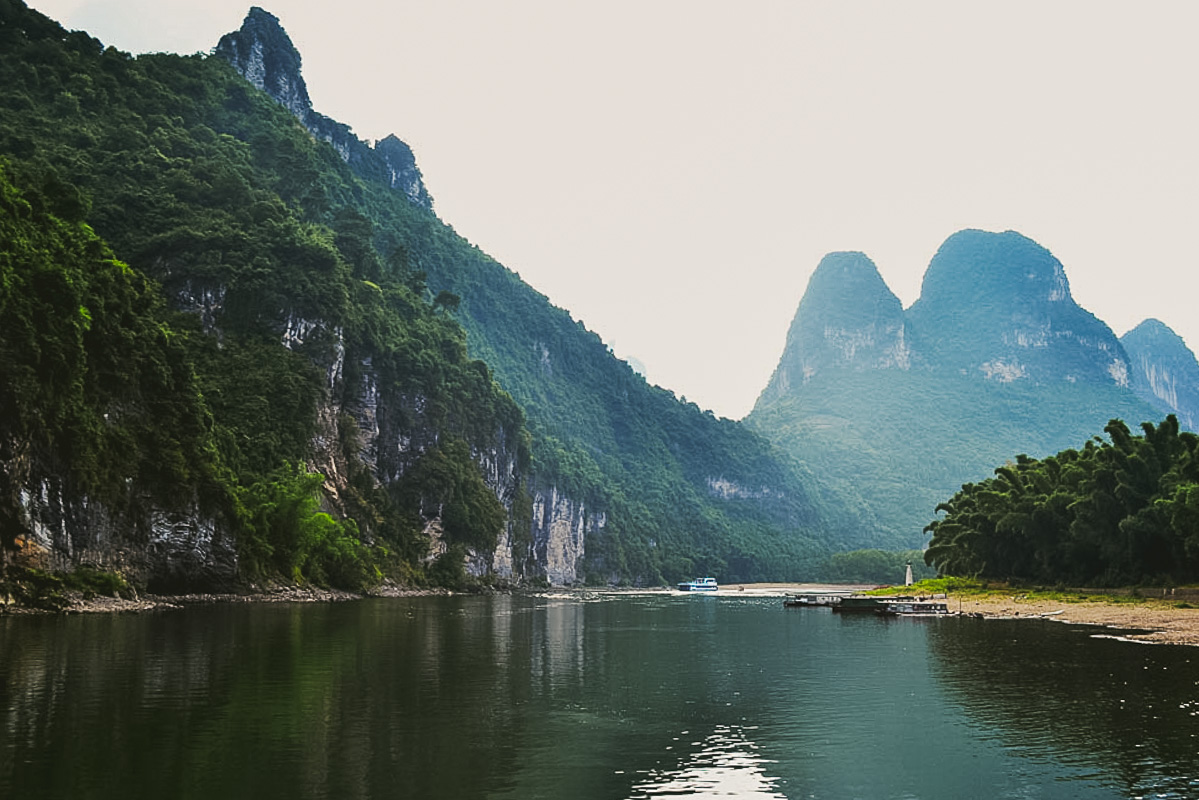
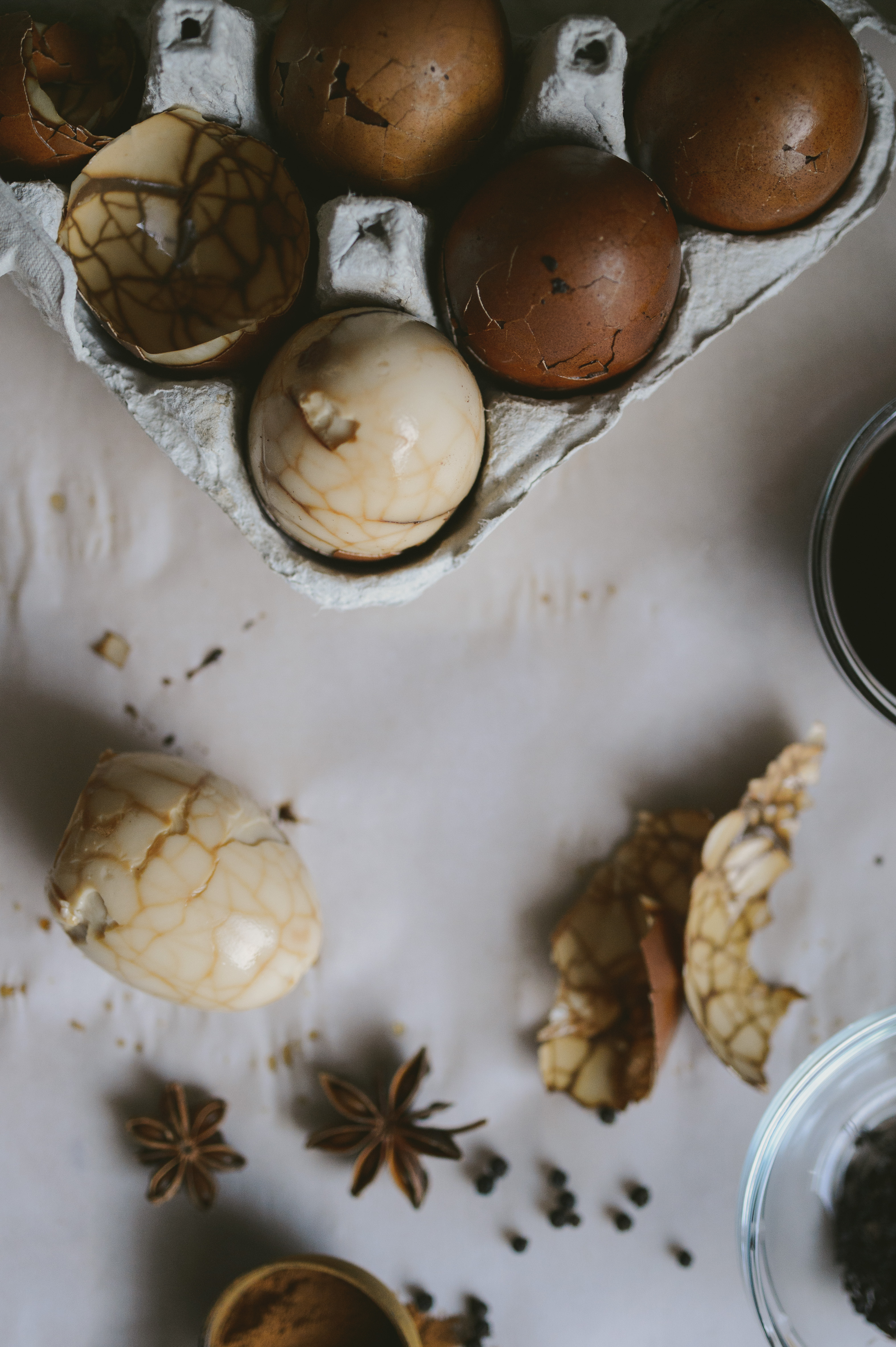
SO thrilled to discover your blog and find my favorite childhood Chinese foods presented in all the glory of a great food blog–the pictures, the stories, the love and care that goes into it all! Thanksthanksthanks. And by fairly random happenstance, Happy Chinese New Year! (I have only vague memories of how you say that in Chinese. Being only half Chinese, I didn’t get the total cultural immersion growing up so I can only eat Chinese but not speak it, hehe.)
This recipe sounds delicious, but wouldn’t the eggs be overcooked with a 30-60 minute simmer. Would love to see a photo of one cut! Thanks!
Hi Betty….
How many eggs do you use to make this recipe? Does it matter if they’re white or brown?
Love your recipes and pics 🙂
No matter if it’s white or brown, and I use as many eggs as can fit – this batch had 6, so I would go from there :).
Thanks for this beautiful recipe! I wonder, do you do anything with the remaining steeping liquid? I imagine with the amount of soy sauce, it would be unappetizing to drink (of course, salted teas do exist, though I think they’ve not made it very far out of Mongolia!). Perhaps it could be an interesting base for soup, or reduced, perhaps with additional sugar, to form a glaze?